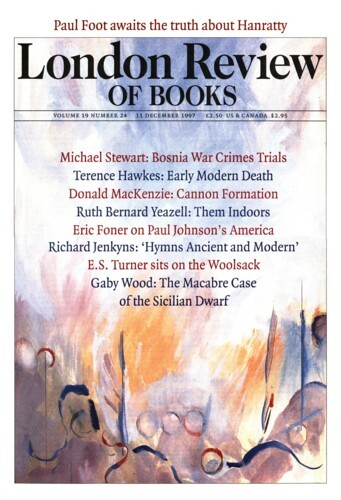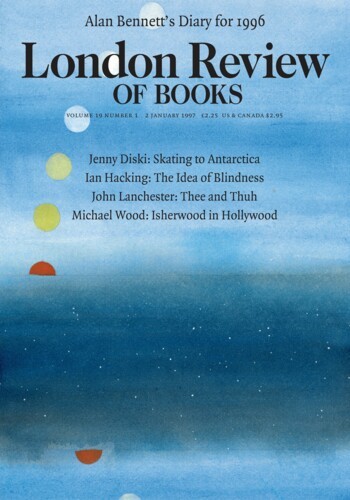Twins in Space
Mark Harris, 11 December 1997
Einstein’s life story is almost as well known as his science. He was born in 1879 into a middle-class Jewish family in southern Germany, and went to school in Munich, where he is supposed to have been an unsuccessful pupil and his Greek teacher predicted that he would ‘never amount to anything’. Albrecht Fölsing points out, however, that by 1929 the legend of Einstein’s poor academic record was so widespread that the principal felt obliged to dispel this bad publicity for the school by revealing his (quite respectable) examination marks in a letter to a Munich newspaper. Whatever the case, Einstein did not enjoy his school years, and when his parents moved away from Munich in 1894, escaped without graduating on the grounds that he was medically unfit for further schooling and that, where mathematics was concerned, he was up to graduation level already. After one more year at school in Switzerland he went to the Zurich Polytechnic to study for a diploma in mathematics – there, he was remembered by the teaching staff as a ‘lazy dog’. After receiving his diploma, he applied unsuccessfully for a number of junior academic jobs – within ten years many of the universities that had rejected him would be falling over themselves to hire him as a full professor – and it was only after a long spell of unemployment that he found a job in 1902 in the Bern Patent Office.’‘



